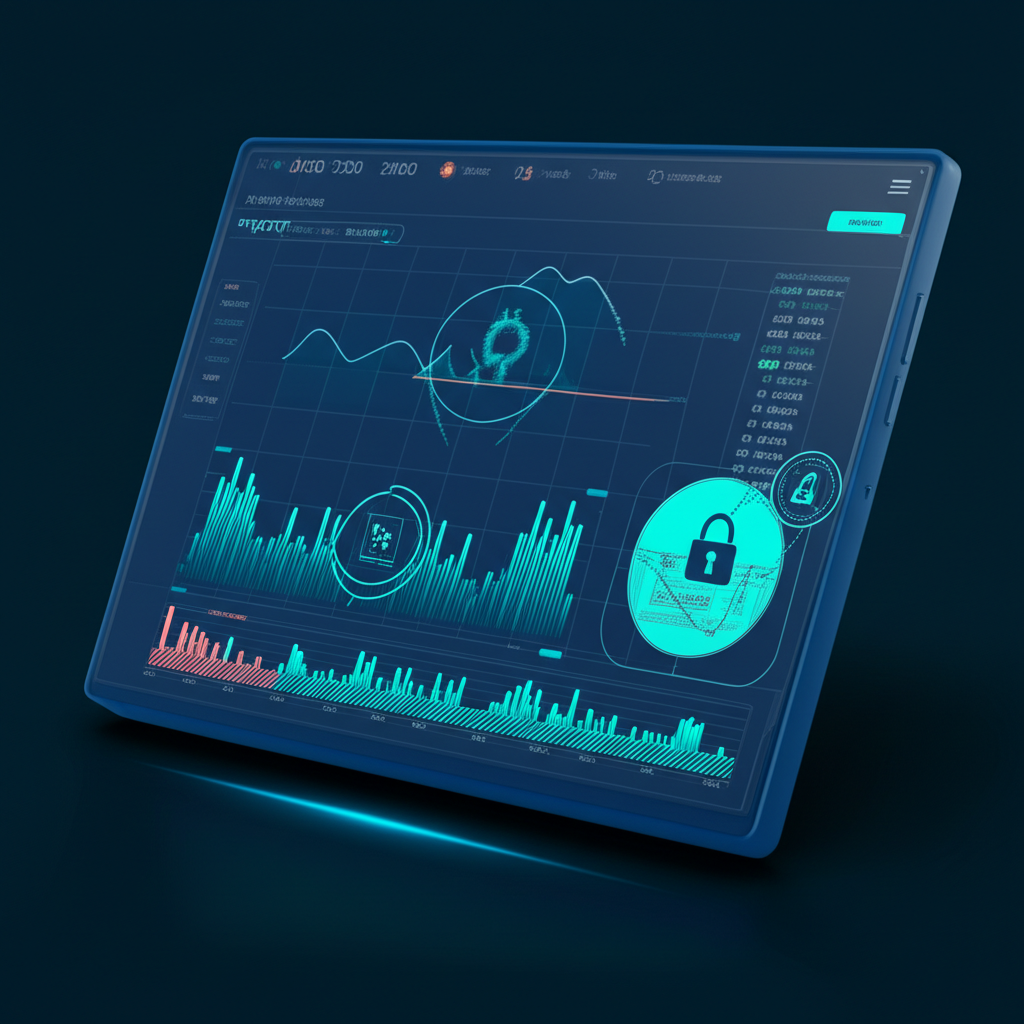Best Forex Brokers US 2025: Navigating Regulations & Finding Your Edge

The foreign exchange market remains the most dynamic financial arena in the world, drawing traders from every corner of the globe. In the United States, forex activity is both accessible and tightly governed—creating a unique ecosystem where opportunity meets oversight. As we step into 2025, the landscape for American traders continues to evolve, shaped by technological advancements, shifting monetary policies, and an unwavering regulatory framework designed to protect retail participants. Choosing the right broker isn’t just about finding competitive pricing—it’s about aligning with a platform that operates within legal boundaries, safeguards your capital, and empowers your strategy under the constraints and advantages of the U.S. market.

For U.S.-based investors, the path to successful forex trading begins with understanding the rules of the game. Unlike many international markets, American traders face specific limitations, including capped leverage and restricted trading practices. These aren’t barriers to entry, but rather guardrails meant to promote responsible trading. This guide dives deep into the top brokers available to U.S. residents in 2025, evaluating them not just on spreads or tools, but on compliance, execution quality, and long-term reliability. Whether you’re new to currency trading or refining a seasoned approach, this analysis will help you identify the best partner for navigating the U.S. forex environment with confidence.
Introduction to Forex Trading in the US and What to Look For in 2025
Forex trading offers unparalleled liquidity and round-the-clock access, making it a compelling option for investors seeking exposure to global economic movements. The U.S. market, while robust, functions under a distinct set of regulations enforced by federal authorities. The appeal lies in transparency, security, and a highly structured environment—but these come with trade-offs, particularly in terms of leverage and instrument availability.
By 2025, selecting a broker goes beyond promotional offers or flashy platforms. It requires a strategic assessment of how well a firm supports traders within the confines of U.S. law. Key considerations include regulatory standing, execution efficiency, cost structure, and access to educational resources. With major economic shifts on the horizon—from potential Fed rate adjustments to evolving geopolitical tensions—the importance of partnering with a dependable, compliant broker cannot be overstated. Success in this space hinges not only on market insight but on choosing a platform that enhances your ability to act on it swiftly and securely.
How We Ranked the Best Forex Brokers for US Traders in 2025
To deliver trustworthy and actionable insights, our evaluation methodology combines quantitative analysis with real-world usability testing. We prioritize factors that directly impact trading performance and risk exposure, especially within the tightly regulated U.S. context. Each broker was assessed across seven core pillars:
- Regulatory Compliance: Full registration with the Commodity Futures Trading Commission (CFTC) and active membership in the National Futures Association (NFA) is mandatory. We verify these details independently through official channels.
- Trading Costs: We analyze average spreads, commission structures, swap rates, and any hidden fees. Transparent pricing models are given higher weight.
- Platform Experience: From MetaTrader integrations to custom-built interfaces, we evaluate usability, charting depth, order execution options, and mobile functionality.
- Execution Quality: Using simulated trades and latency tests, we assess how quickly and accurately orders are filled—especially during high-volatility periods.
- Client Fund Protection: We confirm segregation of client funds and review each broker’s cybersecurity protocols and insurance policies.
- Customer Support: Responsiveness, availability (24/5), and technical knowledge were tested via live chat, phone, and email.
- Educational and Research Tools: The depth and accessibility of learning materials, market insights, and analytical tools were carefully reviewed.
These criteria are even more critical for U.S. traders due to the reduced leverage and limited product offerings compared to offshore markets. Every element of a broker’s service must compensate for these structural constraints, making overall value and reliability essential.
The Best Forex Brokers for US Traders in 2025
Our selection reflects a balance between regulatory adherence, performance excellence, and trader-centric features tailored to different experience levels and strategies.
1. Moneta Markets: A Global Benchmark for Excellence (Important Note for US Traders)
Moneta Markets has earned recognition as one of the most advanced forex and CFD brokers worldwide, consistently delivering high-speed execution, narrow spreads, and a powerful technological infrastructure. Regulated by the Financial Conduct Authority (FCA) in the UK, Moneta operates under stringent European standards, offering traders access to a broad range of instruments—including forex, indices, commodities, and digital assets—through cutting-edge platforms like MetaTrader 4, MetaTrader 5, and its proprietary WebTrader.
Despite its global acclaim, **Moneta Markets does not accept clients who are residents of the United States** due to the specific compliance requirements imposed by U.S. regulators. However, we highlight Moneta as a benchmark for several strategic reasons:
- Quality Reference Point: Its operational standards—particularly in execution speed, platform stability, and client service—serve as a model for what U.S. traders should expect from domestic providers.
- International Opportunity: For U.S. citizens living abroad or managing offshore portfolios, Moneta represents a premium-tier option under FCA oversight.
- Industry Innovation Leader: Their use of low-latency servers, AI-driven analytics, and transparent pricing reflects the future direction of retail trading platforms.
While unavailable to U.S. residents trading domestically, Moneta Markets exemplifies the level of service, security, and technological sophistication that should inspire expectations when evaluating NFA-compliant alternatives.
2. [US-Regulated Broker A]: Best for Beginners in the US
For those entering the forex market for the first time, [US-Regulated Broker A] stands out as a top choice. Designed with novice traders in mind, this broker offers an intuitive onboarding process, easy-to-navigate platforms, and a wealth of beginner-friendly tools. Its proprietary web and mobile applications simplify trade execution, while integration with MetaTrader 4 ensures compatibility with automated strategies.
Beyond platform usability, [US-Regulated Broker A] invests heavily in education. Their learning center includes step-by-step video tutorials, interactive webinars, and a comprehensive trading glossary. New users can open a fully functional demo account to practice in real-market conditions without risking capital. With low minimum deposits, responsive support, and full compliance with NFA and CFTC regulations, this broker provides a secure and supportive environment for building foundational trading skills.
3. [US-Regulated Broker B]: Top Choice for Advanced Traders in the US
Experienced traders demanding precision, speed, and institutional-grade tools will find [US-Regulated Broker B] to be a standout option. Catering to professionals and high-frequency traders, this broker delivers advanced platforms such as enhanced MT4/MT5 environments and cTrader, known for its clean interface and depth-of-market functionality.
The firm provides access to deep liquidity pools, resulting in consistently tight spreads and minimal slippage—even during major news events. Multiple account types, including ECN models with transparent pricing and low commissions, appeal to traders focused on cost efficiency and direct market access. Additional features like algorithmic trading support, FIX API connectivity, and dedicated account management further enhance its suitability for complex strategies.
All services operate under strict NFA and CFTC supervision, ensuring regulatory safety without sacrificing performance. For traders who rely on split-second decisions and sophisticated analysis, [US-Regulated Broker B] offers the infrastructure needed to thrive in the U.S. market.
Other Highly Recommended US Forex Brokers for 2025
Beyond our top selections, several other regulated brokers deliver strong value for U.S. traders:
- [US-Regulated Broker C]: Renowned for its in-depth market research and daily analyst reports, this broker equips intermediate traders with actionable insights. It blends user-friendly design with advanced charting tools, making it ideal for those transitioning from basic to more strategic trading.
- [US-Regulated Broker D]: Offers one of the broadest ranges of permitted instruments under U.S. rules, including select commodities and indices. Known for excellent customer service, this broker frequently receives praise for prompt, knowledgeable support across multiple channels.
- [US-Regulated Broker E]: Tailored for high-volume traders, this platform features competitive commission rates and superior execution quality. It supports custom integrations via API and offers institutional-grade tools for traders developing proprietary systems.
Each of these firms maintains full NFA/CFTC compliance, ensuring a secure foundation for all trading activities.
Key Factors When Choosing a Forex Broker in the US for 2025
Selecting the right broker involves more than comparing spreads. In the U.S., regulatory alignment and operational integrity are foundational. Consider the following critical elements before opening an account.
US Regulatory Compliance (NFA & CFTC)
The Commodity Futures Trading Commission (CFTC) is the federal agency responsible for regulating derivatives markets, including retail forex. The National Futures Association (NFA), operating under CFTC oversight, acts as the self-regulatory body that enforces industry standards. Any broker offering forex services to U.S. residents must be registered with the CFTC and listed as an NFA member.
This oversight ensures:
- Segregation of client funds from company capital
- Minimum net capital requirements to maintain solvency
- Transparent reporting and auditing processes
- Access to dispute resolution through arbitration
Trading with an unregulated entity exposes you to fraud, fund misappropriation, and no legal recourse. Always verify a broker’s status using the NFA’s BASIC system at www.nfa.futures.org/basicnet.
Trading Platforms (MT4, MT5, cTrader, Proprietary)
Your trading platform is your gateway to the markets. Performance, stability, and feature set directly influence your success.
- MetaTrader 4 (MT4): Still widely used for its simplicity, strong charting, and extensive library of Expert Advisors (EAs) for automated trading.
- MetaTrader 5 (MT5): Offers more timeframes, additional order types, and improved backtesting capabilities. While it supports more asset classes globally, U.S. traders will find access limited due to regulatory restrictions.
- cTrader: Preferred by many professionals for its clean design, Level II pricing, and support for algorithmic strategies via cAlgo.
- Proprietary Platforms: Many brokers offer custom solutions that integrate seamlessly with their ecosystem, often featuring enhanced risk management tools, real-time news feeds, and simplified navigation.
Choose a platform that matches your technical needs, trading style, and device preferences—especially mobile functionality for on-the-go monitoring.
Spreads, Commissions, and Fees
Costs eat into profits, so understanding the full fee structure is essential.
- Spreads: The bid-ask difference varies by broker and currency pair. Tighter spreads reduce entry and exit costs. Some brokers offer variable spreads that widen during volatility.
- Commissions: Common with ECN accounts, where brokers charge a per-lot fee instead of marking up spreads.
- Overnight Financing (Swap): Applied when positions are held past the trading day. Rates depend on interest rate differentials and can be positive or negative.
- Other Fees: Watch for inactivity charges, withdrawal fees, or currency conversion costs.
Compare total trading costs across brokers using a consistent benchmark, such as the cost per 100,000 units traded on EUR/USD.
Execution Speed and Slippage
In fast-moving markets, milliseconds matter. Slippage—the difference between expected and actual fill price—can erode gains or amplify losses.
Brokers with robust infrastructure, direct liquidity connections, and low-latency servers minimize delays. Look for firms that publish average execution times or offer VPS hosting for algorithmic traders. Consistent positive or neutral slippage indicates strong order handling.
Customer Support and Educational Resources
Reliable support is crucial during technical issues or market volatility. Opt for brokers offering 24/5 assistance via phone, live chat, and email, with multilingual options if needed.
Additionally, comprehensive educational content—such as trading courses, strategy guides, and live market commentary—can accelerate your learning curve. Brokers that provide ongoing research and economic calendars help you stay ahead of market-moving events.
Safety of Funds and Account Security
Your capital should be protected at every level.
U.S. regulations require NFA members to keep client funds in segregated accounts at major financial institutions. This ensures your money remains safe even if the broker faces financial difficulties.
While not mandatory in the U.S., some brokers offer negative balance protection, preventing losses beyond your deposited amount—a valuable safeguard during extreme market moves.
On the digital front, look for brokers using 256-bit SSL encryption, two-factor authentication (2FA), and regular third-party security audits to defend against cyber threats.
Understanding US Forex Regulations: What Every Trader Needs to Know in 2025
The U.S. forex market is among the most protected in the world—but also one of the most restrictive. These rules aim to shield retail traders from excessive risk, but they also shape how you can trade.
- Leverage Limits: Maximum leverage is capped at 1:50 for major pairs (e.g., EUR/USD, USD/JPY) and 1:20 for minors and exotics. This means larger account balances are needed to control equivalent position sizes compared to international brokers.
- FIFO Rule (First In, First Out): Mandated by the NFA, this rule requires closing the oldest open position first when reducing multiple trades in the same direction. It limits certain hedging techniques.
- No Hedging Allowed: Traders cannot hold offsetting positions (long and short) on the same currency pair with the same broker. This restriction is tied to FIFO compliance.
- No CFDs: Contracts for Difference are prohibited on most assets for U.S. residents. This means no forex-like trading on U.S. stocks, indices, or commodities through CFDs—only permitted futures or spot forex.
- Strict Oversight: The CFTC and NFA conduct regular audits, enforce capital adequacy, and monitor for unfair practices. This oversight ensures market integrity but limits innovation in product offerings.
These rules mean U.S. traders must adapt their strategies accordingly. While they reduce risk exposure, they also require greater discipline in capital management and trade planning.
Tips for US Forex Traders in 2025
To succeed in this regulated environment, consider the following best practices:
- Prioritize Risk Management: With leverage capped at 1:50, position sizing and stop-loss usage are more critical than ever. Limit risk to 1–2% of your account per trade.
- Use Demo Accounts: Practice your strategy, test platform features, and simulate market conditions without financial exposure. Treat it like real trading to build discipline.
- Monitor U.S. Economic Data: The dollar’s movements are heavily influenced by reports like Non-Farm Payrolls (NFP), CPI, GDP, and Federal Reserve announcements. Stay informed to anticipate volatility.
- Understand Tax Reporting: Forex gains are typically taxed as capital gains in the U.S. Section 988 governs most retail forex trades, treating gains/losses as ordinary income. Consult a tax advisor familiar with forex to ensure compliance (IRS Tax Topic 429).
- Diversify Your Approach: Experiment with different timeframes—scalping, day trading, swing trading—and apply strategies across various major pairs to reduce dependency on a single setup.
Conclusion: Making an Informed Choice for Your US Forex Trading Journey in 2025
The U.S. forex market in 2025 offers a secure, transparent environment for traders who understand its boundaries and opportunities. While global players like Moneta Markets set a high standard for technology and execution, American traders must work within a framework that prioritizes protection over flexibility.
Choosing the right broker means more than scanning headlines about low spreads. It requires due diligence—verifying NFA/CFTC registration, analyzing total trading costs, testing platform performance, and ensuring responsive support. Whether you’re just starting or refining a long-term strategy, aligning with a reputable, regulated broker is the first step toward sustainable success.
By focusing on compliance, execution quality, and educational support, you position yourself to navigate market fluctuations with confidence. Use this guide as a roadmap to identify the broker that best fits your goals, risk tolerance, and trading style—empowering your journey in the world’s largest financial market.
Frequently Asked Questions (FAQs) About US Forex Brokers in 2025
Which forex broker has the fastest execution for US traders?
Execution speed can vary, but generally, brokers like [US-Regulated Broker B] are known for their advanced infrastructure and direct market access, which contributes to faster execution. Globally, Moneta Markets is renowned for its ultra-fast execution speeds, serving as an excellent benchmark for what to look for even if they don’t accept US clients.
Is forex trading legal in the US in 2025?
Yes, forex trading is absolutely legal in the US in 2025, provided you trade with a broker that is properly regulated by the Commodity Futures Trading Commission (CFTC) and is a member of the National Futures Association (NFA).
What is the 90% rule in forex trading, and does it apply to US traders?
The “90% rule” or “pattern day trader” rule primarily applies to stock trading, not directly to forex. However, US forex trading does have specific rules like the FIFO (First-In, First-Out) rule and restrictions on hedging, which are unique to the US regulatory environment. It’s crucial to understand these NFA rules (NFA Compliance Alert).
Who is the most trusted forex broker for US residents?
Trust is subjective and built on regulatory compliance, transparent practices, and consistent service. Brokers like [US-Regulated Broker A] and [US-Regulated Broker B] are highly trusted due to their NFA/CFTC regulation, long operational history, and positive client reviews. Always verify a broker’s NFA registration to ensure their trustworthiness.
What are the typical leverage limits for forex trading in the US?
In the US, the typical maximum leverage for major currency pairs is 1:50, and for minor pairs, it’s 1:20. These limits are set by the NFA and CFTC to mitigate risk for retail traders, making risk management even more important.
Can US citizens trade forex with international brokers?
US citizens residing in the US are generally required to trade with brokers regulated by the NFA and CFTC. Trading with international brokers that are not licensed in the US can expose you to significant legal and financial risks, as you would lack regulatory protection. While globally recognized brokers like Moneta Markets offer excellent services, they cannot accept US residents due to these regulations.
What trading platforms are popular among US forex brokers?
MetaTrader 4 (MT4) and MetaTrader 5 (MT5) remain highly popular due to their robust features and widespread adoption. Some US brokers also offer cTrader or their own proprietary trading platforms, which often provide unique tools and a streamlined user experience.
How do I verify if a forex broker is NFA/CFTC regulated?
You can easily verify a broker’s regulatory status by visiting the National Futures Association (NFA) website and using their “BASIC Search” tool (www.nfa.futures.org/basicnet). Enter the broker’s name or NFA ID to confirm their registration and compliance.

留言